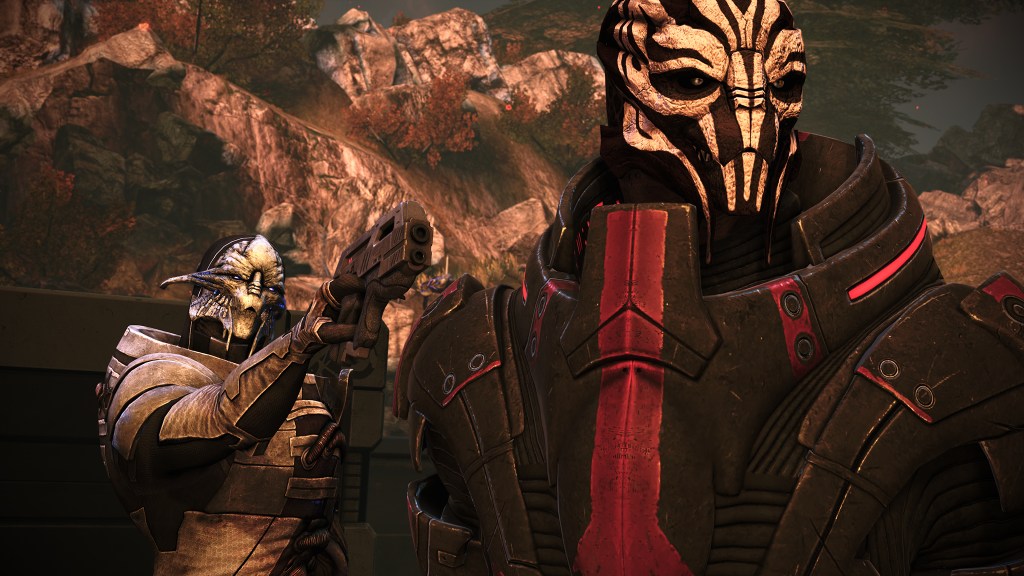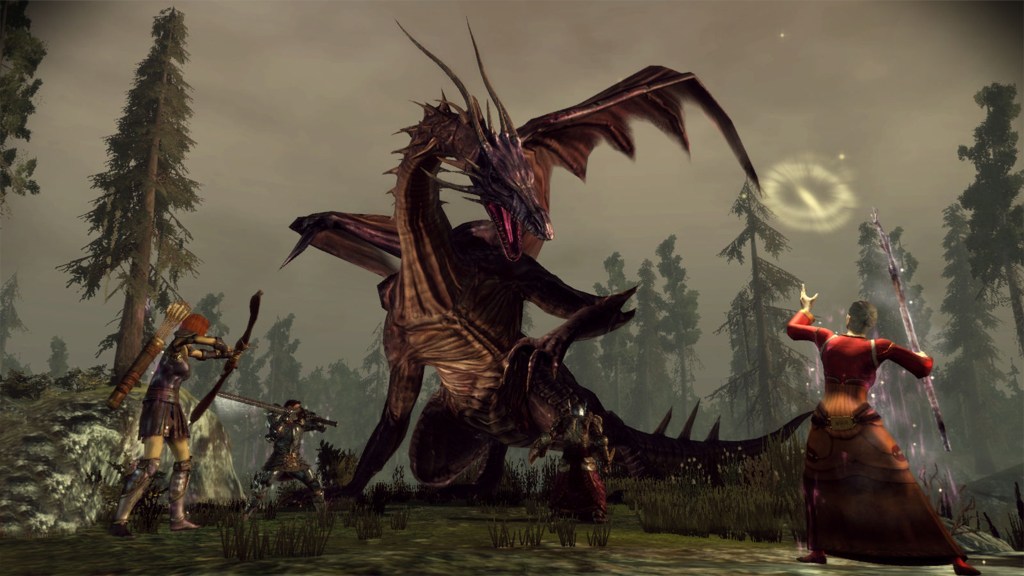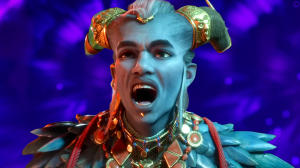BioWare has had a legendarily rough go over the last decade. Mass Effect Andromeda, Anthem, and Dragon Age: The Veilguard, to varying degrees, all did nigh irreparable damage to the once-beloved studio both inside and outside of its walls. But there’s been one high point: Mass Effect: Legendary Edition. This beloved trilogy was beautifully remastered and demonstrated why people loved BioWare, so it’s infinitely strange that EA wouldn’t want to do the same for Dragon Age.
Videos by ComicBook.com
Mark Darrah, who served various senior roles in the main three Dragon Age games (and came in and out of The Veilguard’s development), said as much in a recent interview. He said BioWare had pitched or soft-pitched various Dragon Age remasters over the years to no avail, be it a full trilogy remaster or just a way to play Origins on modern hardware. Regardless of the pitch, EA didn’t budge. Darrah noted EA seems to “be against free money” with its strange stance against remasters.
Mass Effect: Legendary Edition Is the Perfect Blueprint

And while he was semi-joking — it would still cost money to put these games out and he said Origins might be difficult to port — it’s not uncommon to see remasters or remakes fill out the monthly sales charts. Mass Effect: Legendary Edition was the second best-selling game of May 2021, losing only to Resident Evil Village, a game that had an extra week on the market (it also shared the list with four or five other remasters or remakes). It dropped to 16th place the following month and ended the year as the 12th best-selling game on Xbox, 19th on PlayStation, and 12th on Steam.
Nostalgia powers a lot of this industry, and people are likely more willing to buy a spruced-up version of a game that they already know rather than something new and potentially not as great. So it’s strange that a risk-averse company like EA wouldn’t fall back on re-releasing one of its acclaimed franchises after another similar franchise from the same studio performed well. EA even stated Legendary Edition sold “well above” expectations. How did this not immediately greenlight a Dragon Age remaster when the demand for old BioWare games is clearly there?
The money has to be there for a publisher like EA to sign on. And, judging by the Legendary Edition sales, it seems like a relatively safe bet it would be for Dragon Age, too. But if that’s somehow not enough, public sentiment would be another excellent reason to get the Dragon Age games on modern systems.
The hope and optimism surrounding BioWare during the Legendary Edition times felt good. Bagging on the team for Andromeda and Anthem was always sad because it felt like the team was taking the heat for EA’s malfeasance, something later reports would corroborate. (Darrah’s own video about the Anthem’s development lays some blame on various people in BioWare, including himself, but also pokes at EA for its statement on single-player games and the pressure that sentiment exerts on teams like BioWare that specialize in that field.)
But there was nothing to truly scoff at with Legendary Edition, aside from one expansion that has been lost to time. Each game looked great and played well — doubly so for the first game which saw the most enhancements. It was a cohesive celebration without an asterisk. People want to like BioWare and this collection gave them an excuse to.
Dragon Age Remasters Would Make These RPGs More Widely Playable

A set of Dragon Age remasters seems primed to have a similar effect since the two series have a lot in common. Both had well-received trilogies that stumbled with a fourth entry and are part of genres that aren’t as prevalent anymore, particularly at that scale. The Veilguard wasn’t as despised as Andromeda, but it was not the home run it needed to be. A collection would help remind people why they liked Dragon Age and perhaps even clean the slate for a new entry, as far off as that is right now.
Money and player sentiment are important factors here, but the Dragon Age games are — like any piece of art — also just worth preserving. The trilogy is playable on modern Xbox systems and PCs, but the same cannot be said for Nintendo and PlayStation hardware. The first two games are locked to PS3 and are, thus, not playable on PS4 or PS5 (nor are they streamable on PlayStation Plus Premium). Dragon Age has also never been available on any Nintendo systems. It’s unfortunate that these revered games are arbitrarily locked out of certain ecosystems.
EA is used to locking up its franchises, though. It’s a 43-year-old company with all sorts of big IPs in its vault, and its bizarre decision to hardly leverage that back catalog is puzzling. Many series are held prisoner in there, like Burnout, Army of Two, Mercenaries, and Titanfall, so Dragon Age isn’t the only one that’s underutilized. The demand is high, the studio could use the goodwill, and there’s a precedent for financial success. It’s just up to EA to find the key for its cell and set it free.
Do you think Dragon Age should get a remaster? Let us know in the comments below!









